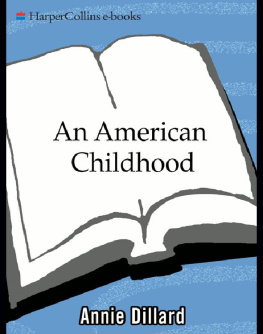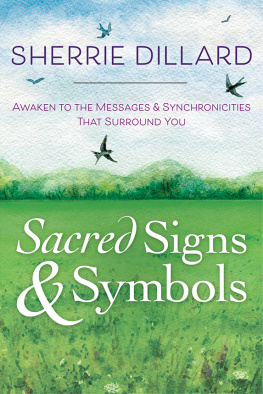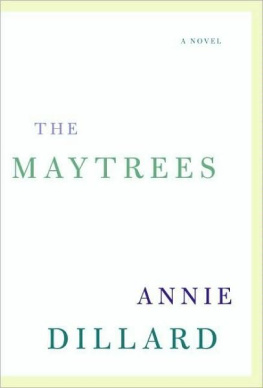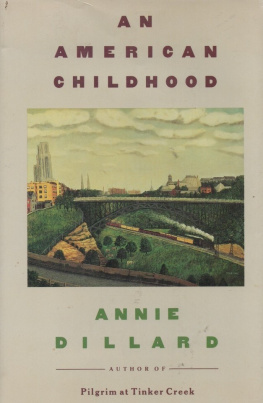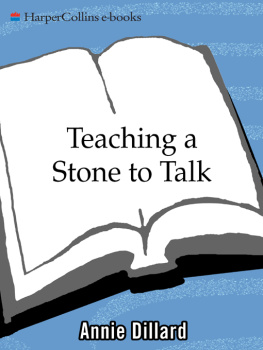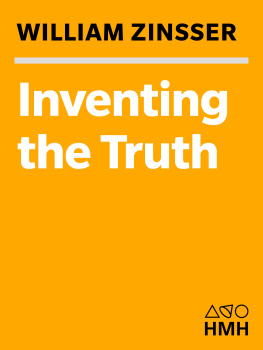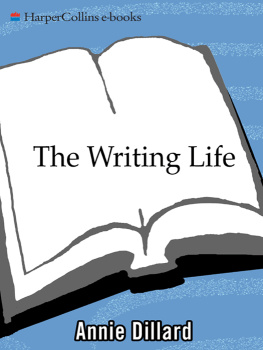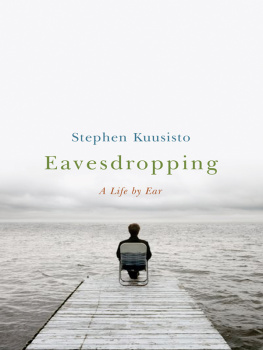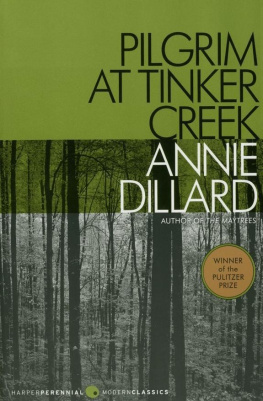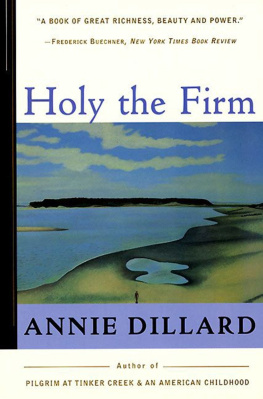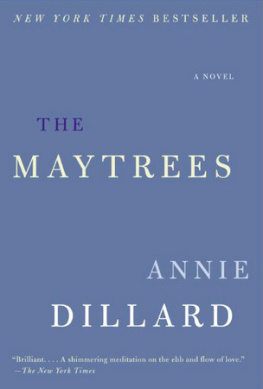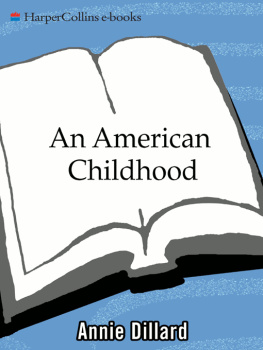Dillard - American Childhood
Here you can read online Dillard - American Childhood full text of the book (entire story) in english for free. Download pdf and epub, get meaning, cover and reviews about this ebook. year: 2011;2014, publisher: HarperCollins e-Books, genre: Detective and thriller. Description of the work, (preface) as well as reviews are available. Best literature library LitArk.com created for fans of good reading and offers a wide selection of genres:
Romance novel
Science fiction
Adventure
Detective
Science
History
Home and family
Prose
Art
Politics
Computer
Non-fiction
Religion
Business
Children
Humor
Choose a favorite category and find really read worthwhile books. Enjoy immersion in the world of imagination, feel the emotions of the characters or learn something new for yourself, make an fascinating discovery.
- Book:American Childhood
- Author:
- Publisher:HarperCollins e-Books
- Genre:
- Year:2011;2014
- Rating:5 / 5
- Favourites:Add to favourites
- Your mark:
- 100
- 1
- 2
- 3
- 4
- 5
American Childhood: summary, description and annotation
We offer to read an annotation, description, summary or preface (depends on what the author of the book "American Childhood" wrote himself). If you haven't found the necessary information about the book — write in the comments, we will try to find it.
Dillard: author's other books
Who wrote American Childhood? Find out the surname, the name of the author of the book and a list of all author's works by series.
American Childhood — read online for free the complete book (whole text) full work
Below is the text of the book, divided by pages. System saving the place of the last page read, allows you to conveniently read the book "American Childhood" online for free, without having to search again every time where you left off. Put a bookmark, and you can go to the page where you finished reading at any time.
Font size:
Interval:
Bookmark:
for my parents
P AM L AMBERT D OAK
and
F RANK D OAK
A grant from the John
Simon Guggenheim Memorial Foundation
aided this work.
I have loved, O Lord, the beauty
of thy house and the place
where dwelleth thy glory.
PSALM 26


W HEN EVERYTHING ELSE HAS GONE from my brainthe Presidents name, the state capitals, the neighborhoods where I lived, and then my own name and what it was on earth I sought, and then at length the faces of my friends, and finally the faces of my familywhen all this has dissolved, what will be left, I believe, is topology: the dreaming memory of land as it lay this way and that.
I will see the city poured rolling down the mountain valleys like slag, and see the city lights sprinkled and curved around the hills curves, rows of bonfires winding. At sunset a red light like housefires shines from the narrow hillside windows; the houses bricks burn like glowing coals.
The three wide rivers divide and cool the mountains. Calm old bridges span the banks and link the hills. The Allegheny River flows in brawling from the north, from near the shore of Lake Erie, and from Lake Chautauqua in New York and eastward. The Monongahela River flows in shallow and slow from the south, from West Virginia. The Allegheny and the Monongahela meet and form the westward-wending Ohio.
Where the two rivers join lies an acute point of flat land from which rises the city. The tall buildings rise lighted to their tips. Their lights illumine other buildings clean sides, and illumine the narrow city canyons below, where people move, and shine reflected red and white at night from the black waters.
When the shining city, too, fades, I will see only those forested mountains and hills, and the way the rivers lie flat and moving among them, and the way the low land lies wooded among them, and the blunt mountains rise in darkness from the rivers banks, steep from the rugged south and rolling from the north, and from farther, from the inclined eastward plateau where the high ridges begin to run so long north and south unbroken that to get around them you practically have to navigate Cape Horn.
In those first days, people said, a squirrel could run the long length of Pennsylvania without ever touching the ground. In those first days, the woods were white oak and chestnut, hickory, maple, sycamore, walnut, wild ash, wild plum, and white pine. The pine grew on the ridgetops where the mountains lumpy spines stuck up and their skin was thinnest.
The wilderness was uncanny, unknown. Benjamin Franklin had already invented his stove in Philadelphia by 1753, and Thomas Jefferson was a schoolboy in Virginia; French soldiers had been living in forts along Lake Erie for two generations. But west of the Alleghenies in western Pennsylvania, there was not even a settlement, not even a cabin. No Indians lived there, or even near there.
Wild grapevines tangled the treetops and shut out the sun. Few songbirds lived in the deep woods. Bright Carolina parakeetsred, green, and yellownested in the dark forest. There were ravens then, too. Woodpeckers rattled the big trees trunks, ruffed grouse whirred their tail feathers in the fall, and every long once in a while a nervous gang of empty-headed turkeys came hustling and kicking through the leavesbut no one heard any of this, no one at all.
In 1753, young George Washington surveyed for the English this point of land where rivers met. To see the forest-blurred lay of the land, he rode his horse to a ridgetop and climbed a tree. He judged it would make a good spot for a fort. And an English fort it became, and a depot for Indian traders to the Ohio country, and later a French fort and way station to New Orleans.
But it would be another ten years before any settlers lived there on that land where the rivers met, lived to draw in the flowery scent of June rhododendrons with every breath. It would be another ten years before, for the first time on earth, tall men and women lay exhausted in their cabins, sleeping in the sweetness, worn out from planting corn.
I N 1955, WHEN I WAS TEN , my fathers reading went to his head.
My fathers reading during that time, and for many years before and after, consisted for the most part of Life on the Mississippi . He was a young executive in the old family firm, American Standard; sometimes he traveled alone on business. Traveling, he checked into a hotel, found a bookstore, and chose for the nights reading, after what I fancy to have been long deliberation, yet another copy of Life on the Mississippi . He brought all these books home. There were dozens of copies of Life on the Mississippi on the living-room shelves. From time to time, I read one.
Down the Mississippi hazarded the cub riverboat pilot, down the Mississippi from St. Louis to New Orleans. His chief, the pilot Mr. Bixby, taught him how to lay the boat in her marks and dart between points; he learned to pick a way fastidiously inside a certain snag and outside a shifting shoal in the black dark; he learned to clamber down a memorized channel in his head. On tricky crossings the leadsmen sang out the soundings, so familiar I seemed to have heard them the length of my life: Mark four!Quarter-less-four!Half three!Mark three!Quarter-less It was an old story.
When all this reading went to my fathers head, he took action. From Pittsburgh he went down the river. Although no one else that our family knew kept a boat on the Allegheny River, our father did, and now he was going all the way with it. He quit the firm his great-grandfather had founded a hundred years earlier down the river at his familys seat in Louisville, Kentucky; he sold his own holdings in the firm. He was taking off for New Orleans.
New Orleans was the source of the music he loved: Dixieland jazz, O Dixieland. In New Orleans men would blow it in the air and beat it underfoot, the music that hustled and snapped, the music whose zip matched his when he was a man-about-town at home in Pittsburgh, working for the family firm; the music he tapped his foot to when he was a man-about-town in New York for a few years after college working for the family firm by day and by night hanging out at Jimmy Ryans on Fifty-second Street with Zutty Singleton, the black drummer who befriended him, and the rest of the house band. A certain kind of Dixieland suited him best. They played it at Jimmy Ryans, and Pee Wee Russell and Eddie Condon played it tooNew Orleans Dixieland chilled a bit by its journey up the river, and smoothed by its sojourns in Chicago and New York.
Back in New Orleans where he was headed they would play the old stuff, the hot, rough stuffbastardized for tourists maybe, but still the big and muddy source of it all. Back in New Orleans where he was headed the music would smell like the river itself, maybe, like a thicker, older version of the Allegheny River at Pittsburgh, where he heard the music beat in the roar of his boats inboard motor; like a thicker, older version of the wide Ohio River at Louisville, Kentucky, where at his familys summer house hed spent his boyhood summers mucking about in boats.
Getting ready for the trip one Saturday, he roamed around our big brick house snapping his fingers. He had put a record on: Sharkey Bonano, Lil Liza Jane. I was reading Robert Louis Stevenson on the sunporch: Kidnapped . I looked up from my book and saw him outside; he had wandered out to the lawn and was standing in the wind between the buckeye trees and looking up at what must have been a small patch of wild sky. Old Low-Pockets. He was six feet four, all lanky and leggy; he had thick brown hair and shaggy brows, and a mild and dreamy expression in his blue eyes.
Font size:
Interval:
Bookmark:
Similar books «American Childhood»
Look at similar books to American Childhood. We have selected literature similar in name and meaning in the hope of providing readers with more options to find new, interesting, not yet read works.
Discussion, reviews of the book American Childhood and just readers' own opinions. Leave your comments, write what you think about the work, its meaning or the main characters. Specify what exactly you liked and what you didn't like, and why you think so.

